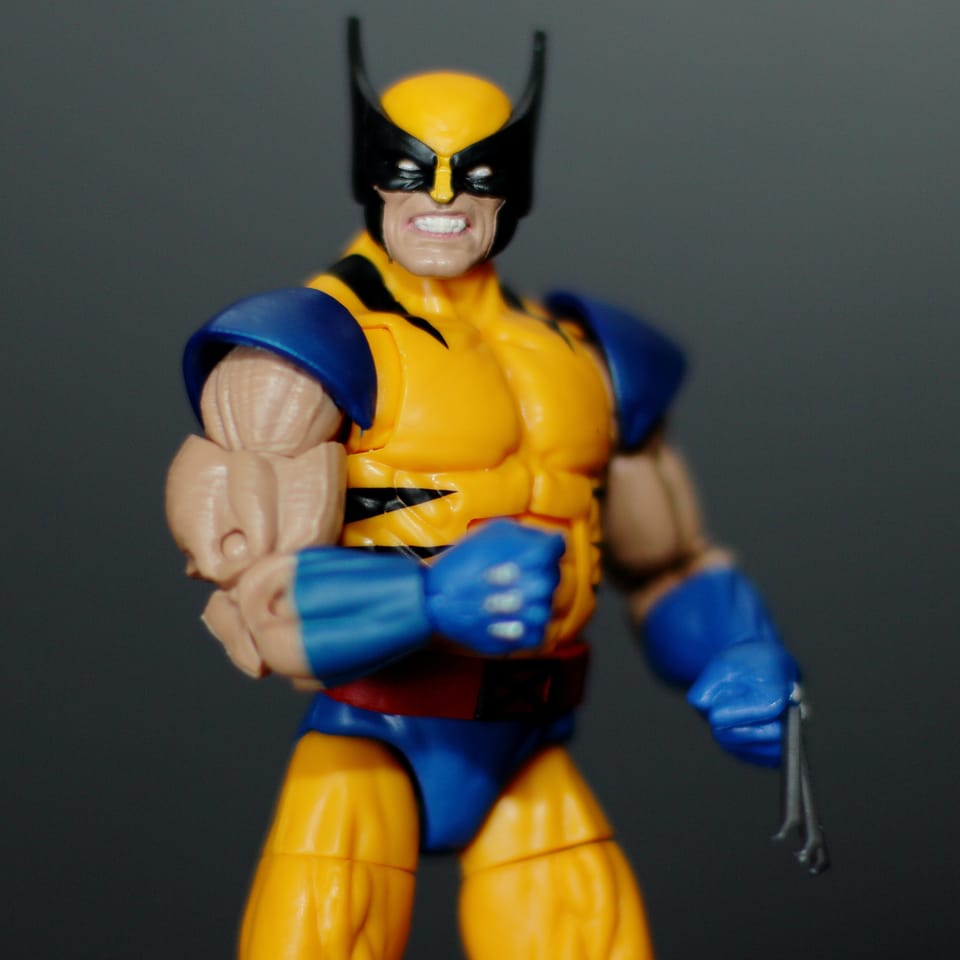Why Wolverine and the henchmen dilemma

Like many, I went and saw Deadpool and Wolverine. It's an endless Marvel commercial, a sponsored puzzle piece in it's vast universe of money making. It's corporate. It's irreverent; I think it wishes it could be more campy. "Disney is so stupid," Deadpool says at least once in the film, but Disney also paid for it.
In small flashes it's funny, but stuck in a performative masculinity that basks in vulgarity and easy video game violence. Open question: of all the henchmen, especially in the opening scene, what about them? Don't they have families/friends, hopes, and dreams? Should we, like the four men friend group that sat behind me at the theaters, be cheering every time a skull gets crushed or a toros gets ripped open?
It comes with the territory — I like an action flick, but there seemed to be a strange celebration of henchmen death happening on the film. I guess as audience viewer, I am not supposed to think about the slayed henchmen in movies like this one, or John Wick, or Star Wars. Are the henchmen people then? Or standalone obstacles — objects to give our heroes something to do until they — the hero, super or not — face-off with the boss, the foil? It's the henchmen dilemma.
It's a bit like the Death Star question: What about the janitors, electricians, plumbers, and cooks who died on the Death Star? What about all the people left in the wake of Deadpool's bloody katana swords, or Wolverine's claws? I'm also dizzy with worry about the worshiping of guns (the pausing of lines and camera shots on those golden Desert Eagle Mark XIX), and the way no one really ever dies (except henchmen). The film seems to lack a political direction. It tries to toe the line between cool and worship when it comes to weapons and violence, guarding and hiding real views with humor, eye rolls, trolling, and resistance-to-seriousness irony. Political and social reality is disdained and forgotten in this world.
(For more on gun worshiping in US, here's an excellent Bloomberg piece on Gun Tubers – the gunfluencers.)
These superheroes of Deadpool and Wolverine can skip through timelines of carnage — busting through enemies and surviving — because they can heal quickly. The regenerative healing dimension of these heroes used to be novel. It used to be something the camera zoomed in on: the rapid construction of cells that closed an open and fatal wound — it was a wonder to heal: scenes bathed in light movie score, disbelief captured on other characters's faces. Like in the first X-Men after Logan is flung from the front seat of his car, bashes out of the front window, and into the snowy ground (wear your seatbelt).
But alas, that was a different context. That first film introduced Wolverine to audiences. Whole generations of the global audience have seen these films, and all kinds of ways a hero avoids death. A bullet or a blade going into a body has different value in this universe, especially now. It loses it's impact.
Of course back then in 2000, we were going to take a pause and watch in wonder. But what has been lost when the threat and value of death is so very much vaporized — for the main characters and the minor ones? The weight of death and pain can't be felt, even though, perhaps, that's one of the strong suits of the character of Wolverine, for me.
But perhaps it is just like a video game. We are there to play — to watch well-costumed characters fight from A to B, from left to right. The people who get in the way are Lego pieces, digital representations, full fantasy smoke.
While in the fight scenes near the end, I thought I would feel something more watching Wolverine don his classic black capped hood and his yellow and blue suite. I grew up on that version of Wolverine from the 90s Fox Kids — it's the version I wanted to see back in 2000 as a ten-year-old watching X-Men.
As I watched that scene, though, it did indeed feel like watching a video game. Wolverine humming on the right side of the screen, buttons ready to make it him move and slash and fight his way to a goal — a goal to save the universe.
It was mildly satisfying to have arrived to an old craving, but it also felt cheap. It truly felt like Hugh Jackman earnestly playing costume, and made me more aware of what I was truly watching. I respect the undertaking of making this film, and am saddened to how weighted down the creativity and the culture is by these type of films. I can't really escape their gravity, either.
Because of this endless quality, the movie made me cringe that I paid money and contributed to making the Marvel machine going. As one NYT writer put it:
It is watchable because it’s self-reflective. But now that the jabs are coming from inside the house, it hits different. On the one hand, “Disney’s so stupid.” On the other hand, Disney paid for this movie, and we pay them to watch it. This business makes suckers of us all.
We are suckers mainly because these films don't end, the money doesn't stop coming in. This film alone broke records and pushed Marvel past the global gross of $30 billion. Comics, superhero movies, may just be too much of a good thing — a good thing that doesn't end. As writer Kathryn Xu put it in The Defector:
Comics exist in a perpetual state of continuance. This is especially true for massive superhero franchises, but even "Something Is Killing the Children" has no clear stopping point. The bleakness will continue and morale will not improve, and I personally do not find that to be a pleasant state to exist in; even a sad or bittersweet ending is at least an ending. And if all good things must end, then maybe I need things to end to be good.
So, why did I go? Why did the trailer make me want to go? I went out of fandom. I went because Madonna's song in the trailer made me feel uplifted. I went because I wanted to see these characters redeem themselves and do something remarkable. I went because I had a small action figure of Wolverine that I prized as one of my favorite. The yellow uniform, the claws, the tenacity. I went out of allegiance to that folly, a piece of me who won't grow up.
The fandom is real, and I feel something when I imagine Wolverine in my head. I imagined being him for many hours of my childhood — either through the action doll, or through my own body, fighting with the air, henchmen in my head, slashing my arms like I had claws erupting out of my hands.
With a childhood marked by back and foot surgeries, imagining to be Wolverine gave my disempowered body a form of power.
As I got older, surgery and a change of body drew me to the character of Wolverine. He was forced to become something. I at times felt like my body was being forced to be something — some kind of body ideal. Even though all the doctors were trying to do was get my body to a place of more functionality.
When Logan is dunked into tank to get adamantium fused to his skeleton, his body is given a new function. He molded into a weapon. I wasn't becoming a weapon, but I identified with the action of going under the knife and coming out with a different body, something seriously modified — along with the titanium metal bolted to my own spine and pelvis. An experience I endured a few times in my youth.
Perhaps Wolverine is left best in my imagination — an image of a person who knows something about what it means to have intense surgery. To hold onto the hope that someone can learn to live with that experience, bend it to your advantage, grow from it, even. To eventually refuse to be what the world tried to make you.
The right lesson might be to look away from what the culture is trying to make you look at. Instead, take your gifts and circumstances and find a new purpose, a new community, find your group of mutants. You can learn to live another way.


Member discussion